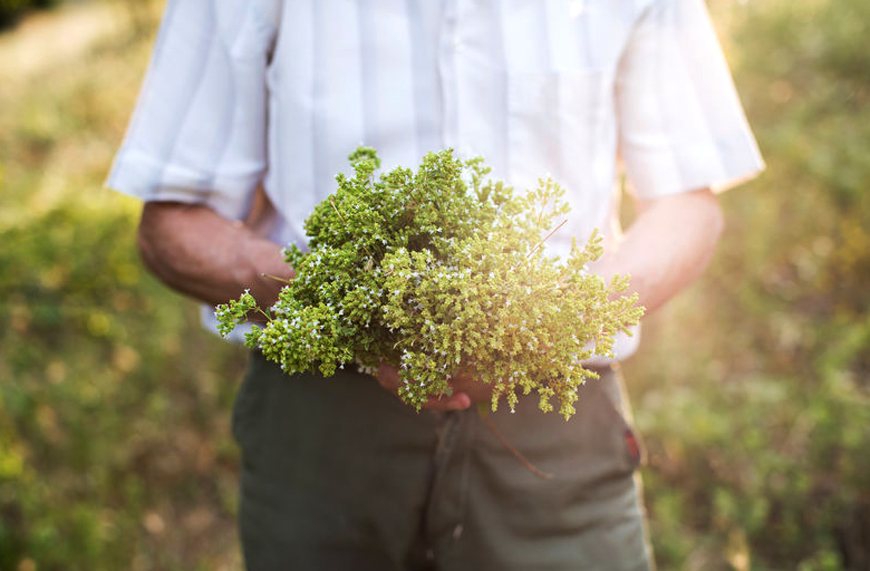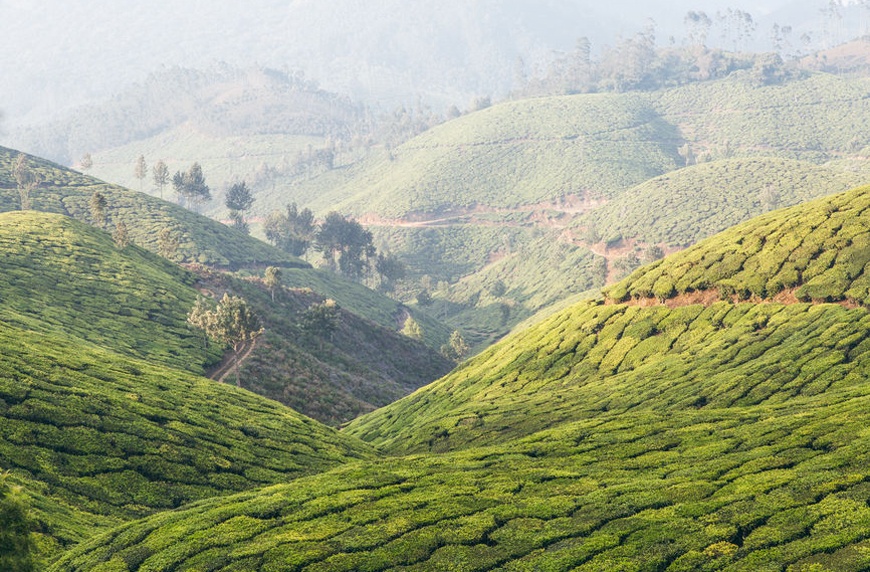While all of this plant power is arguably great for our health, the high demand for herbs isn’t always such a win for the planet. In fact, some commonly used species are currently in danger of extinction from overharvesting—a phenomenon that has a knock-on effect on entire ecosystems of plants and animals.
“As the world demands more and more herbal and Ayurvedic medicines, plant populations are declining,” says Julie Bernier of Los Angeles’ True Ayurveda. “As of 2009, 300 of India’s medicinal plants were on the International Union for Conservation of Nature’s Red List of Threatened Species.” Some of the most critically endangered include anti-inflammatory guggulu; jatamansi, which is used for insomnia and anxiety; ashoka, a women’s hormonal remedy; and sandalwood, which is commonly used in fragrance.
Just like elephants and tigers are endangered from hunting and habitat destruction, certain plants are also at risk of disappearing from the Earth forever.
This issue affects every industry where herbs are commonly used, including beauty. “When a medicinal plant is harvested—whether for making medicine or for a beauty product —the plant parts used and methods for harvesting and extracting are generally the same,” says Amy Galper, cofounder of the New York Institute of Aromatic Studies and a member of Credo’s Clean Beauty Council.

{{post.sponsorText}}
So just like elephants and tigers are endangered from hunting and habitat destruction, certain plants are also at risk of disappearing from the Earth forever, and for similar reasons. Luckily, there are things you can do as a consumer to help reverse this worrying trend, without totally turning your back on plant medicine if you need it.
Keep reading for more on the overharvesting crisis that’s affecting some commonly used medicinal herbs—and what you can do to help.

What is overharvesting?
Before you overhaul your supplement cabinet, it’s important to know what’s actually happening. So I asked Bernier to provide a little environmental science 101. “When a plant or animal is harvested at an unsustainable rate—faster than it can replenish itself—it’s considered overharvested,” she says. “In the worst-case scenario, continuous overharvesting can result in extinction.”
But wait—can’t farmers just plant more seeds if they notice their supply of a certain species is running low? Not exactly, Bernier says. Some plants just don’t thrive on a farm, and herbs can take years to grow to maturity. “Many of India’s medicinal plants grow in the wild, and they simply can’t regrow as fast as we’re using them. This makes it impossible for farmers to simply grow more of a plant,” she says. Add in the fact that some species’ habitats are being destroyed (because, humans), and you’ve got a recipe for horticultural disaster.
And this doesn’t just affect the endangered plants in question—it harms the entire ecosystem. “Overharvesting can disrupt the entire harmonious balance of hundreds and even thousands of other species,” says Bernier. “The loss of a plant can threaten the loss of an animal who depends on it as a main food source. The loss of a forest due to overharvesting can threaten the entire plant and animal population that lives within it.”

What can we do to prevent overharvesting of medicinal plants?
The easiest way to ensure you’re not contributing to the overharvesting crisis is to seek out herb brands that are actively and transparently choosing not to use endangered plants. Bernier calls out Banyan Botanicals as one upstanding example, and Moon Juice is another—founder Amanda Chantal Bacon tells me that the company reformulated its cult-y Sex Dust because one of the original ingredients, cistanche, was being overharvested.
“For our Moon Dusts, we went herb by herb for the optimal source, studying the plant’s native region and the history of the farmer,” she says. “Most of our herbs come from organic farms who ensure the soil and land are not being depleted. In situations where organic farms are not available, we use wildcrafted herbs [from] suppliers who carefully monitor not only the plant population, but the environment as well.”
Essential oil brand Vitruvi also creates its collections with overharvesting in mind. “We’ve chosen not to offer sandalwood essential oil and to remove it from a previous product we carried, despite its popularity,” says Vitruvi cofounder Sara Panton. “Sandalwood trees are endangered and take decades to mature before the oil can be extracted. Years ago, these forests were overharvested to use the wood for expensive furniture and extracts were used for perfume and essential oil use.” (That said, Galper points out that some farms in Australia have started growing Indian sandalwood in a conscious, sustainable way—so this may become a healthy option again in the future.)
“We’ve chosen not to offer sandalwood essential oil and to remove it from a previous product we carried, despite its popularity.”—Sara Panton, Vitruvi
And on the cosmetics front, clean-beauty retailers like Credo let you buy botanical serums and shampoos without the worry. “We require that [brands] be prepared to back up any claims they make around ingredients, such as ‘wildcrafted’ or ‘sustainably harvested,’” says Mia Davis, the company’s director of mission.
Other options include experimenting with herbs that are grown locally in your area—an idea from Jade Shutes of the New York Institute of Aromatic Studies—or just dialing back on your herbal consumption altogether. “There’s a huge misuse of Ayurvedic herbs like ashwagandha in the American wellness world,” says Bernier. “They’re unnecessarily added to all kinds of products and their use here is kind of waste: They may not be properly digested, and unless they’re taken correctly and over a certain period of time, they may not have any effect. We can reduce their exploitation by making our food and exercise our primary medicine, and using herbal allies only when we truly need them.” This will ensure they’re still there for us when we actually do require them the most.
When it comes to sustainability, small actions add up to make a big impact—like composting your trash and ditching plastic bottles.
Loading More Posts...